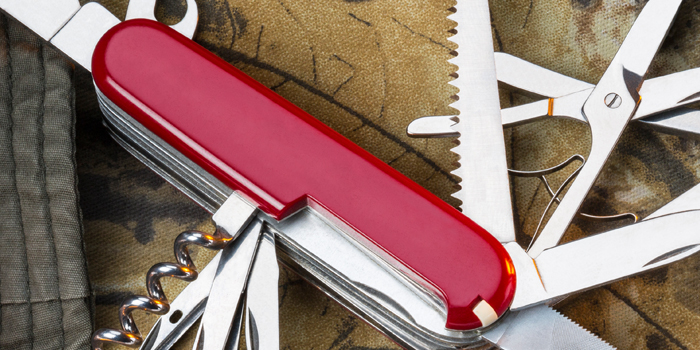New Year Financial Fitness: How to Prepare Your Finances for a Disaster

2017 was a record year of natural disasters, from fires to floods to hurricanes. Plus, many of us live along the earthquake-prone West Coast, which means it's always good to be prepared. While your mind might go to water, energy bars and batteries when thinking about an emergency preparedness kit, it’s just as important to be prepared financially.
Umpqua teams in the fire-ravaged California wine country experienced this first-hand. Here are their thoughts and tips for being prepared financially for a disaster, based on their and their customers’ experiences.
Collect your documents
Napa-Sonoma area Umpqua associates and store managers said these were the most frequently mentioned documents people needed after the fires:
- Passports
- Birth certificates, marriage license, death certificates, trust and will documents
- Credit cards
- Driver's licenses
- Insurance policies
- Mortgage/house deeds or statements
- Bank statements
Put everything in the right place
Experts suggest you keep original documents like birth certificates or Social Security cards (except for a will) in a safe deposit box, along with copies of driver's licenses and some cash.
Ruth, who works in the Santa Rosa store, suggests keeping a safe deposit box key on your car key ring. She said many neighbors kept theirs in a desk drawer and the keys were lost in the fire.
Then keep copies of documents, plus insurance policies and some extra cash, in an emergency kit. A fireproof safe is a small, inexpensive option you can grab quickly if you need to evacuate. But Ruth pointed out that this fire was so hot that many safes melted or the safes were so hot that, when opened, the oxygen set the contents on fire. That's why experts say safes/vaults should not be opened for at least 2-3 weeks after a fire.
Take stock – and take photos
Document your belongings in case of a fire, break-in or other emergency. A good rule of thumb is to take detailed photos of big ticket items like electronics or power tools, including serial and model numbers, or jewelry and antiques. For the rest, take a photo inside a kitchen cabinet or closet. Some insurance companies let you use a video in a claim as well. Ask your insurance agent for details.
Whatever you do, be sure to store a backup somewhere secure. One easy option is to save your photos/video to a memory card and keep that card in a safe deposit box.
Review your insurance
If you own a home, you probably got homeowners insurance amid the swirl of all the other decisions you have to make and paperwork you have to fill out. It's easy to forget the details with the passage of time, so check in with your insurance agent to make sure you know what your policy covers and that your home has enough coverage. Most policies cover fire damage, but as many Northern Californians find out during the fire season, that's not the whole story. Also, are you covered for flooding? Should you be? What about an earthquake?
If you rent, consider getting renters insurance to cover your belongings. Unlike, say, car insurance, renter's insurance can be surprisingly inexpensive.
For more ideas on financial fitness, check out our checklist.




